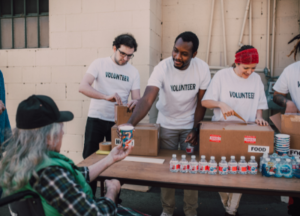
If you run a nonprofit or other organization that works for the greater good, you might find yourself considering international travel. For example, members of your organization may want to bring food or medical supplies to other countries, participate in construction projects, provide educational services or have other reasons for traveling abroad. However, when they do, they are taking a significant risk. It is important to provide them with the tools and information they need to accomplish their mission safely. Here are some key steps they should take:
- Create an emergency identification kit. If a traveler’s passport becomes lost or stolen, they could find themselves in a vulnerable position. They should photocopy the data page of the passport and write down the addresses and telephone number of the U.S. embassies in the countries they plan to visit. They should store this information and an extra photo of themself in a place separate from their passport.
- Make sure you are aware of any security or public health issues. If there are any conditions that would pose risks to American travelers, your people should know about them. The Overseas Security Advisory council provides up-to-date information on all destinations. In addition, the Centers for Disease Control and Prevention (CDC) provides COVID-19 travel recommendations by destination.
- Check driver’s license requirements at the destination. Some countries require foreign visitors to have an International Driving License before operating a vehicle there. The International Drivers Association offers a list of those countries.
- Make sure you are up to date on your immunizations. Travelers should see their doctor at least six weeks before they plan to leave, as some vaccines require six weeks to reach their full amount of protection. When they travel, they should keep prescribed medication in its original packaging to avoid problems in Customs. They should make sure they have a sufficient supply for the entire trip, but take a paper copy of the prescription along, just in case.
- Obtain travel insurance. This insurance can cover injuries, illnesses, stolen passports, lost or stolen belongings and trip cancellation. Organizations can choose individual or group rates; when they purchase a group policy, they can build the cost of the insurance into the cost of the trip per participant. Each traveler will then receive an individual identification card that will allow them to use the insurance when needed.
ChurchInsure is a division of Anchor Insurance Agencies specializing in the unique insurance and risk management needs of religious institutions. Visit our website to learn how we can serve you at anchor-insurance.com/churchinsure.
Originally posted on Church Mutual


